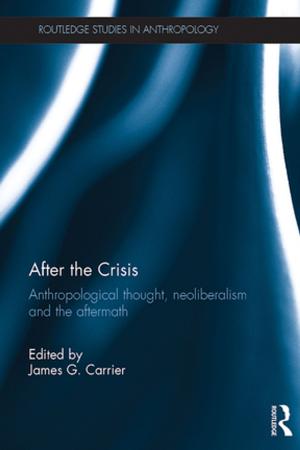The Routledge Handbook of Museums, Media and Communication
Nonfiction, Social & Cultural Studies, Social Science, Archaeology| Author: | ISBN: | 9781317197430 | |
| Publisher: | Taylor and Francis | Publication: | December 7, 2018 |
| Imprint: | Routledge | Language: | English |
| Author: | |
| ISBN: | 9781317197430 |
| Publisher: | Taylor and Francis |
| Publication: | December 7, 2018 |
| Imprint: | Routledge |
| Language: | English |
Museums today find themselves within a mediatised society, where everyday life is conducted in a data-full and technology-rich context. In fact, museums are themselves mediatised: they present a uniquely media-centred environment, in which communicative media is a constitutive property of their organisation and of the visitor experience. The Routledge Handbook of Museums, Media and Communication explores what it means to take mediated communication as a key concept for museum studies and as a sensitising lens for media-related museum practice on the ground.
Including contributions from experts around the world, this original and innovative Handbook shares a nuanced and precise understanding of media, media concepts and media terminology, rehearsing new locations for writing on museum media and giving voice to new subject alignments. As a whole, the volume breaks new ground by reframing mediated museum communication as a resource for an inclusive understanding of current museum developments.
The Routledge Handbook of Museums, Media and Communication will appeal to both students and scholars, as well as to practitioners involved in the visioning, design and delivery of mediated communication in the museum. It teaches us not just how to study museums, but how to go about being a museum in today’s world.
Museums today find themselves within a mediatised society, where everyday life is conducted in a data-full and technology-rich context. In fact, museums are themselves mediatised: they present a uniquely media-centred environment, in which communicative media is a constitutive property of their organisation and of the visitor experience. The Routledge Handbook of Museums, Media and Communication explores what it means to take mediated communication as a key concept for museum studies and as a sensitising lens for media-related museum practice on the ground.
Including contributions from experts around the world, this original and innovative Handbook shares a nuanced and precise understanding of media, media concepts and media terminology, rehearsing new locations for writing on museum media and giving voice to new subject alignments. As a whole, the volume breaks new ground by reframing mediated museum communication as a resource for an inclusive understanding of current museum developments.
The Routledge Handbook of Museums, Media and Communication will appeal to both students and scholars, as well as to practitioners involved in the visioning, design and delivery of mediated communication in the museum. It teaches us not just how to study museums, but how to go about being a museum in today’s world.















